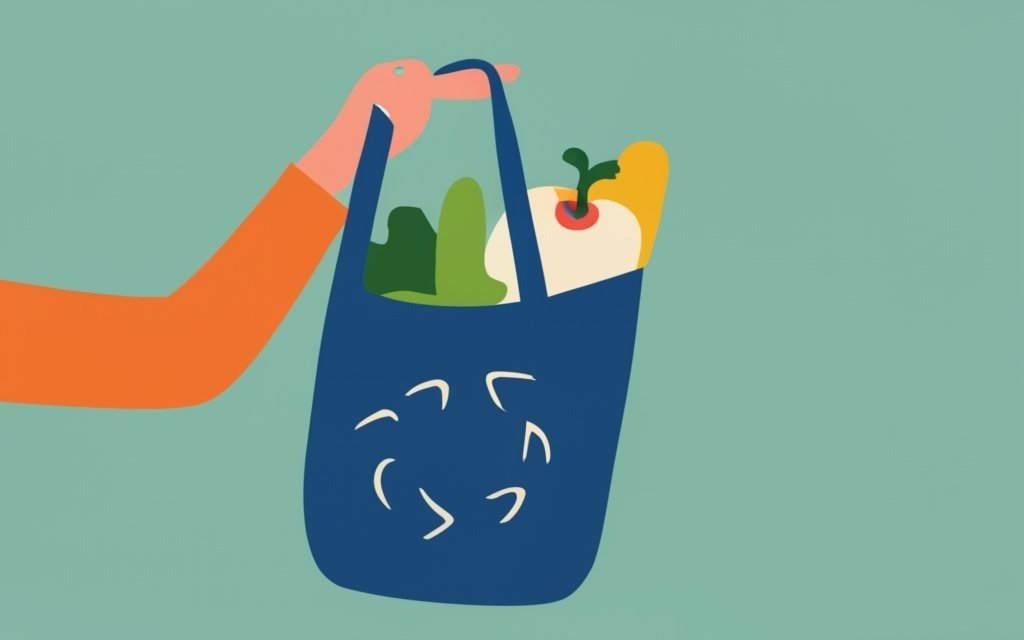Living a more sustainable lifestyle doesn’t have to be difficult. With a few small changes to your daily habits, you can make a big difference in the environment. Here are 25 easy tips for sustainable living to help you go green, reduce waste, and lead a more eco-friendly life.
Conserve Energy and Resources
One of the easiest ways to go green is to conserve energy and resources. Simple steps like turning off lights when not in use, unplugging appliances when not charging them, and taking shorter showers can help reduce your energy and water usage.
Use Energy Efficient Appliances
When it’s time to replace appliances and devices, look for ENERGY STAR-certified models that use less electricity and save you money on utility bills. Smart power strips also cut energy waste by completely shutting off standby power to devices not in use.
Adjust the Thermostat
Turning down your thermostat just a couple of degrees in winter and up a couple of degrees in summer can really trim your heating and cooling costs. Wearing extra layers indoors and using fans to stay cool avoids overusing climate control systems.
Reduce, Reuse, Recycle
Cutting down on waste makes a big impact. Follow the mantra “reduce, reuse, recycle” when it comes to consumption and disposal.
Avoid Single-Use Items

Carry reusable shopping bags, food containers, and water bottles. Skip disposable coffee cups, plastic utensils, and paper napkins when dining in or taking out. Choose products with less packaging to further minimize waste.
Donate and Repurpose
Give gently used clothing and household goods to charity organizations. Turn empty jars into storage containers. Upcycle scrap fabric into quilts. Find creative ways to prolong the life of possessions before throwing them out.
Compost Food Scraps
Over 30% of household waste is composed of food and yard scraps that could be composted instead of sent to landfills. Composting improves soil nutrients naturally.
Make Eco-Friendly Purchases
You can support sustainable businesses and products through the power of your dollar. Seek out companies that prioritize social responsibility and environmental stewardship.
Buy Local
Patronize farmer’s markets, local shops, and restaurants. Purchasing locally grown food and goods boosts the community. It also eliminates transport pollution from long supply chains.
Choose Organic Cotton, Bamboo, and Hemp
Conventional cotton uses immense amounts of pesticides and water. Substitute apparel and linens made from greener materials like organic cotton, bamboo, and hemp.
Use Natural Cleaning Products
Avoid cleaners with harsh chemicals that get released into the ecosystem. Opt for eco-friendly plant-based ingredients and products in glass or aluminum containers.
Conserve Water
With rising populations and climate change, freshwater is an increasingly precious resource. Do your part to reduce water waste.
Install Water-Saving Fixtures
Low-flow showerheads, faucets, and toilets drastically cut household water consumption. Rain barrel systems also capture roof runoff for irrigation reuse.
Wash Full Loads
Run the dishwasher and washing machine only when full. This avoids the water waste of frequent smaller washes. Shorter cycles also conserve energy.
Reduce Outdoor Watering
Limit lawn watering to twice weekly. Water plants in the early morning or evening to reduce evaporation. Add mulch around trees and shrubs to retain moisture.
Get Involved in Your Community
Connect with like-minded people devoted to sustainability. Environmental initiatives often start at the grassroots level.
Volunteer
Look for local opportunities to help maintain nature reserves, plant trees or clean up parks. Activism fosters change while bringing communities together.
Support Green Businesses
Reward sustainable companies with your loyalty and recommendations. Write reviews highlighting their efforts. Offer feedback on how they could improve.
Contact Local Government
Let your voice be heard by voting, attending town meetings, and reaching out to officials. Policies like green building codes truly enhance sustainability.
Making eco-friendly choices does not require drastic lifestyle changes. Start with small steps that work for your circumstances. Every action, no matter how minor, collectively makes a tremendous difference for the future of our planet. What tips do you recommend adding to this sustainable living guide? Please share any of your own green practices by commenting below!
